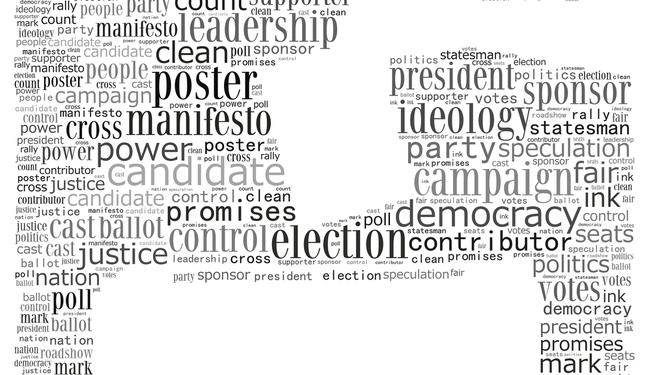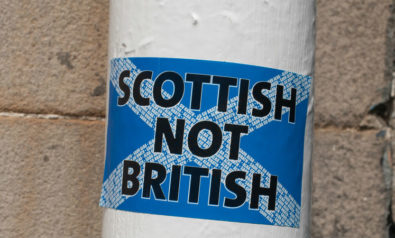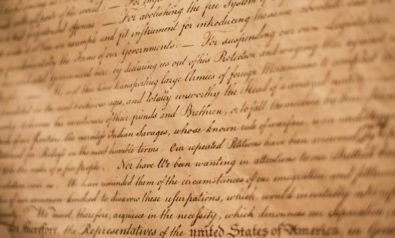Greig Lamont looks at the justifications offered by the Scottish government for its decision to bar prisoners from voting in next year’s referendum on Scottish independence, and asks what they can tell us about progressive politics in Scotland.
In March, Alex Salmond announced, to great fanfare, the date on which Scotland will decide its destiny: the “historic day” when “the people will decide Scotland’s future.” He told the Scottish Parliament that September 18, 2014, “offers the people the opportunity to vote for an independent Scotland.”
The Scottish government had by that point already published its Scottish Independence Referendum (Franchise) Bill to extend the vote to 16- and 17-year-olds in next year’s historic plebiscite. Whilst that hitherto disenfranchised group will, it seems, be counted as part of “the people” of Scotland for the purposes of the referendum, it has become clear in the supervening months that prisoners serving custodial sentences on the date of the vote will not be afforded the same dignity.
The Scottish Parliament has largely avoided the hot potato of prisoner voting since its reconvention in 1999. The election franchise is, after all, largely reserved to Westminster. The parameters of that nebulous concept have therefore been a simple one as far as Holyrood is concerned: “the people” are whoever Westminster has said they are.
A Fundamental Human Right
The referendum agreement between the Scottish and UK governments changed all of this. Both parties accepted those entitled to take part in Scottish parliamentary and local government elections should be able to vote in the referendum. However, the agreement provided that it would be for the Scottish government to decide whether, and if so how, to extend the franchise for the referendum.
The Scottish government was given a clean slate. Westminster’s hot potato was now Holyrood’s.
The right to vote is a fundamental aspect of citizenship. It recognises individuals as active citizens with a stake in their government and society, rather than mere passive, functional extensions of the state. As such, the ability to choose, or at least influence, one’s destiny through the democratic process is a crucial embodiment of human dignity. It is intrinsically linked to our humanity and directly connected to our moral and ethical status as human beings.
The assertion that the entitlement to vote is not a privilege is a long-established legal and political principle. The European Convention on Human Rights (ECHR), the United Kingdom Supreme Court (UKSC), and the European Court of Human Rights (ECtHR) have consistently said as much, and no serious mainstream political party disputes such a self-evidently true proposition. The entitlement to vote is, rather, a fundamental human right.
Of course, that right is not absolute – few rights ever are – and, both in law as well as politics, it is generally accepted that limitations properly exist. The nature of rights, all rights, however, requires any such limitations to be strictly justified: especially so where the right at stake is a fundamental one.
Policy of Disenfranchisement
It is against this background that the Scottish government’s policy of prisoner disenfranchisement takes place, as well as the historical, social, and political importance of the independence referendum.
The policy memorandum accompanying the Franchise Bill succinctly sets out the Scottish government’s position: “Convicted prisoners detained in a penal institution will not be eligible to vote in the referendum.” Its position is, therefore, clear. But what about its justification? What arguments has the Scottish government offered in support of its policy? The memorandum is remarkably thin on the justificatory front, oscillating between an outright deferral to the UK government’s position on the matter, and the technical legal claim that ECtHR rulings on prisoners voting “does not relate to referendums.”
When giving evidence to the Referendum Bill Committee in March, the deputy first minister, Nicola Sturgeon, relied almost solely on the latter legal argument. There she told fellow MSPs that: “The legal position is clear, not just in terms of the wording of the particular clause in the European convention on human rights but in the case law that has resulted from that, which has made clear…that [the ECHR] applies to elections to parliaments and legislatures but not to referenda.”
In one sense, the Scottish government is right. Article 3 Protocol 1 of the ECHR provides that states must hold “free elections” to ensure “the free expression of the opinion of the people in the choice of the legislature”. Given that Article 3 Protocol 1 governs only elections for the “choice of the legislature”, it is arguable that its provisions do not cover a referendum stricto sensu, and ECtHR as well as domestic jurisprudence supports that tentative conclusion.
In another sense, however, the Scottish government is very wrong. Whilst the independence referendum is, prima facie, a choice between two constitutional settlements, it is nevertheless an explicit election on “the choice of the legislature” for matters currently reserved to Westminster.
When it comes to defence, immigration, employment law, micro- and macro-economic policy, the independence referendum is, in a very real sense, a vote between Westminster and Holyrood as a sovereign legislature.
As far as the Scottish government’s legal justification for disenfranchisement goes, as Lord Denning had the habit of saying, “that argument does not appeal to me in the least.”
When debating the Franchise Bill in the Scottish Parliament last week, however, the deputy first minister moved from the realm of law to the province of principle when seeking to justify the Scottish government’s policy of disenfranchisement.
The justification proffered to the Chamber consisted of two broad arguments (I take it to be two, though it may have only been one – the deputy first minister did a good job of conflating the two points).
The first strand was as follows: “Prisoners should not be entitled to vote in the referendum [because] the franchise for the referendum is based on the franchise for local government and Scottish Parliament elections, neither of which currently extend to convicted prisoners.”
However, that argument fundamentally misunderstands the terms of the referendum agreement and the whole project of the exercise at hand. The entire point of the bill being debated was to extend the franchise to include 16- and 17-year-olds – a group also not currently allowed to vote in Scottish parliamentary and local government elections. Sturgeon’s first argument is as much an argument against extending the franchise to them as it is to extending it to prisoners.
The more substantive, second, strand ran: “If somebody commits a crime which lands them in prison, they break their contract with society [and that]…includes the right to vote in elections.” Unfortunately, this argument is ultimately as unpersuasive as the first.
Breach of Social Contract?
It is difficult to know what the deputy first minister meant by her claim that prisoners forfeit their right to vote in virtue of breaking their “contract with society”. Perhaps she did not know herself (her colleague Bruce Crawford MSP certainly did not seem to when he gave a painfully simplistic rendition of the same argument later in that very debate).
If it amounts to a claim that breach of one’s associative obligations through illegal conduct fundamentally severs one from society, and that prisoners thus enter a state of civic death on incarceration, then this sits uneasily with the observation that convicted prisoners held in penal institutions are nevertheless expected to fulfill other civic obligations imposed upon them by the state, such as paying taxes at the normal rates. Prison Service Order Number 4460, which is still in force, provides that “prisoners earning over the normal thresholds for Income Tax and National Insurance contributions are not exempted from these payments.”
If illegal conduct amounts to a tearing up of the “social contract”, both parties should be released from all of their relevant contractual entitlements and duties – but we still require prisoners to continue to uphold their side of the bargain in all other areas of the alleged “agreement”.
Alternatively, if the argument amounts to the claim that by breaching legal or moral societal norms prisoners are morally unworthy of voting – that the purity of the ballot box should be reserved only for the virtuous – then that is, as Susan Easton has potently argued, to fundamentally misunderstand the nature of rights. Rights do not depend on virtue.
The Scottish government’s justifications for prisoner disenfranchisement are, it seems, not really justifications at all. In any event, they were certainly not the strongest hand that could have played. The deputy first minister may have had better luck with a number of alternative, or supplementary, approaches. She might have sought to justify prisoner disenfranchisement on the basis of a retributivist theory of justice, which, crudely put, is the view that proportionate punishment is, in principle, the correct response to crime — a line of reasoning regularly invoked by successive UK home secretaries.
However, even on a retributivist interpretation, punitive disenfranchisement is hard to justify. It is not clearly linked to desert, the degree of harm caused, nor the culpability of the offender. Furthermore, it is utterly arbitrary in its application given that its effect as a punishment will depend on the timing of an election, which is itself subject to the vagaries of political life.
Not only that, but if punishment is the real justification for disenfranchisement, then the vote in the referendum should have been extended to prisoners serving life sentences who have served the tariff portion of their time (the punitive element of their incarceration).
Alternatively, Sturgeon might have invoked a deterrence-based justification, namely that barring prisoners from voting in elections (or referenda) is justified on the basis that it will have a deterrent effect on individuals thinking of committing crimes. However, not only is it possible for disenfranchisement to have no practical deterrent effect whatsoever — where the maximum sentence for a crime committed is shorter than the period before the next election — but it is also difficult to imagine a would-be criminal deciding against a serious criminal act for fear of being unable to vote in the upcoming parliamentary ballot. As with the retributivist argument, the deterrence-based justification faces similarly insuperable obstacles.
Pragmatic Populism
The conclusion seems inevitable. The arguments extended by the Scottish government in support of prisoner disenfranchisement for the independence referendum simply do not stand up to scrutiny. Whether legal, moral or political, their justifications remain unpersuasive at best; fundamentally flawed at worst.
What has been most telling in the discussion surrounding prisoner voting in the independence referendum, however, has been the SNP’s reluctance to match their characteristic posturing as a party of progressivity and reform, hampered only by a draconian Westminster machine, with tangible deeds when push ultimately comes to shove.
This is not merely a cause for concern – it is a reason for outright alarm. As Tavish Scott MSP noted, when faced with a genuinely tough call about “building a better Scotland”, the Scottish government “bottled it in favour of the politically safe status quo.”
However, we should hardly be surprised. This is increasingly becoming the modus operandi of the Scottish government. Whether it is modernising the NHS or reforming the welfare system, the SNP’s progressive credentials always ultimately seem to escape them. Prisoner voting can now be added to this list as another area where policy has been based not on sound legal or principled argument, but on pragmatic, calculated populism – and that never makes good politics.
Fourteen years ago, the Constitutional Court of South Africa, when ruling that the right to vote extended to all prisoners, said that, “the universality of the franchise is important not only for nationhood and democracy” but that “the vote of each and every citizen is a badge of dignity and personhood. Quite literally, it says that everybody counts.”
Today, the Scottish government leaves us in no doubt that, when it comes to the independence referendum, in the end, some people really just do not count at all. Ultimately, the independence referendum will be an opportunity lost for Scotland. Justice, fairness, and the conscience of mankind shall have to wait another day.
*[Note: This article is written in a personal capacity and in no way reflects the views of the author’s employers.]
The views expressed in this article are the author’s own and do not necessarily reflect Fair Observer’s editorial policy.
Image: Copyright © Shutterstock. All Rights Reserved.
Support Fair Observer
We rely on your support for our independence, diversity and quality.
For more than 10 years, Fair Observer has been free, fair and independent. No billionaire owns us, no advertisers control us. We are a reader-supported nonprofit. Unlike many other publications, we keep our content free for readers regardless of where they live or whether they can afford to pay. We have no paywalls and no ads.
In the post-truth era of fake news, echo chambers and filter bubbles, we publish a plurality of perspectives from around the world. Anyone can publish with us, but everyone goes through a rigorous editorial process. So, you get fact-checked, well-reasoned content instead of noise.
We publish 2,500+ voices from 90+ countries. We also conduct education and training programs
on subjects ranging from digital media and journalism to writing and critical thinking. This
doesn’t come cheap. Servers, editors, trainers and web developers cost
money.
Please consider supporting us on a regular basis as a recurring donor or a
sustaining member.
Will you support FO’s journalism?
We rely on your support for our independence, diversity and quality.













Comment